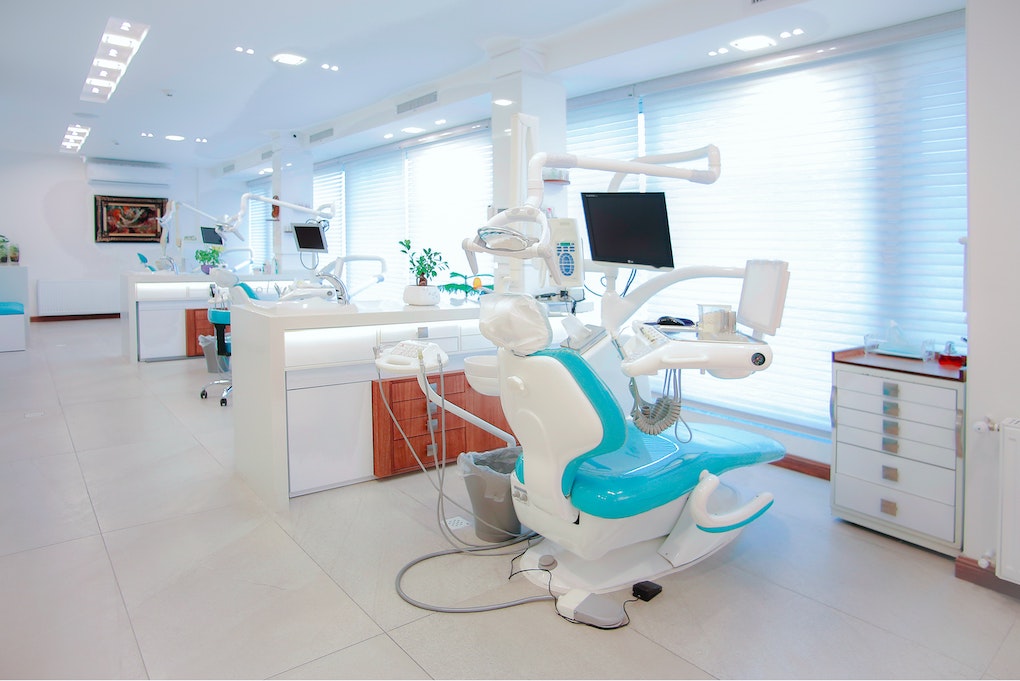All dentists who own their practice will eventually reach a point when they’re ready to make a career transition. The circumstances vary by individual dentist. A dentist may decide to sell because they want to retire or move to a new career path altogether. A dentist may assume their only options are to take on an associate — often with an eye toward partnering and an eventual buy-out — or a straight buy-out of their practice. Little do they know, there are more options out there.
Selling a practice to a dental corporation is another option, but if you are a dentist who has thoughtfully built a practice over a number of years, creating a patient-centered business and cultivating a caring team, you might have misgivings about that idea. You may worry that a corporation won’t ensure patients are treated with the same level of care or your staff might be asked to cut corners and short-change patients in the name of profit.
It’s not an unreasonable concern. Committed, highly trained health care providers, like dentists, act in the best interests of their patients, and they don’t like the idea of a bean-counter who doesn’t have the appropriate clinical training weighing in on care plans. That said, it’s important to know there’s a wide range of operating models used by dental corporations. Dental service organizations (DSOs) are an increasingly popular choice for dentists.
DSOs aren’t a monolith — there are many types of DSO arrangements, as they can provide staff and patients with more opportunities while offering financial benefits for doctors. So, it pays to keep an open mind and not write DSOs off as “corporate dentistry.” It’s a good idea for dentists who are planning a career transition to get a better understanding of what DSOs are, why they are gaining marketplace traction, and the pros and cons of working with a DSO. Here’s a closer look at DSOs that can help you make a more informed decision about private practice versus corporate dentistry.
Why more dentists are choosing DSOs
The American Dental Association (ADA) defines a DSO as “entities that dental practice owners contract with to manage the administrative, marketing and/or business sides of that dental practice.” Put another way, they are organizations that handle the non-clinical aspects of a practice. For many dentists, the non-clinical portions of managing the practice are exactly the part they’d willingly hand off to someone else so that they can focus more of their attention on patient care.
DSOs come in all shapes and sizes, ranging from teams that manage a handful of practices to large DSOs that manage more than 1,600 offices. The fact is that fewer dental practices are selling to individuals now than ever before. One reason behind the shift is the high debt load new dentists carry: The average dental school graduate owes more than $290,000 in student loans today, so they are less likely to be in a position to buy a practice.
In addition to the debt load, dental practices have historically been undervalued by banks and an individual dentist is typically beholden to what a bank is willing to lend.
So, why the move toward DSOs? For one, there are simply more DSOs operating today than in the past and their more differentiated than ever, which makes it more likely that a dentist who wants to make a transition will choose a DSO. Also, because DSOs offer a variety of arrangements, dentists are more likely to find a DSO offering terms that help them meet their objectives, such as an arrangement where the dentist stays with the practice to provide patient care but relinquishes management responsibilities. That option could be a good fit for dentists in a variety of scenarios, including those who are planning for retirement in a few years and those who are seeking a better work-life balance.
Another factor that is contributing to the rise of DSOs is that they have a funding advantage. Individual buyers typically rely on bank financing, which can be hard to obtain for some would-be purchasers, particularly in an uncertain economy when banks are tightening standards. DSOs are usually funded by private equity groups, so they can pay more to purchase a practice.
Available DSOs models
Although some dentists may put DSOs under the “corporate dentistry” heading and conclude that selling to a DSO is tantamount to selling out to a corporation, the truth is there are many different types of DSOs. Here’s a brief look at DSO models and how they affect the dentists who sell their practices under each type of DSO investment arrangement.
- Joint venture: In the joint venture model, the dentist who is selling and the DSO investor both contribute capital in the form of money, equipment and other types of assets into a joint venture, and they share in the growth of the practice proportionally, according to the terms of the joint venture agreement. In this arrangement, the dentist maintains day-to-day clinical control of the practice, and a doctor will often sell between 60% and 70% equity in their practice.
- Equity roll: This type of arrangement is a group affiliation as opposed to a partnership with a group. In an equity roll, the practice owner sells 100% of the practice and then trades in a portion of their equity into the DSO as a whole.
- Sub-DSO: In this type of practice transition, the dentist who owns the practice exits the transition debt-free with a substantial upfront payment and typically retains 40% ownership and profit shares in a holding space outside the DSO or practice level. Returns can be made on a variety of levels, including equity, profit sharing and exit after parent DSO recapitalization.
- Direct investment with private equity: In this model, your practice may be large enough that you don’t need a DSO. You can circumvent the DSO and go directly to private equity. That way, you become a founding member of a DSO.
The key point to keep in mind is that DSOs are not one-size-fits-all. That’s why it’s important for any dentist who is considering a practice transition to be aware of their options, preferably by discussing them with an objective party, like a dental practice broker. It’s not a matter of “corporate dentistry versus private practice” — the terms of the arrangement and the value the selling dentist realizes are the most significant factors.
DSO pros and cons
Dentists who are planning a career transition should think outside the “corporate dentistry versus private practice” box, and it starts by better understanding what a DSO offers. In some situations, DSOs can offer the most value and still enable you to maintain high standards of patient care. But not all DSOs are alike, and neither are dental practice transitions, so it makes sense to review the pros and cons of selling to a DSO, as well as pros and cons of selling to an individual.
For a dentist who is not yet ready to retire but is nearing the end of their career and wants to offload some of the hassles associated with running a practice, a DSO can be a great option. The right DSO can make daily operations easier by handling the business side while the dentist manages clinical decisions. The DSO can handle collections, supplies, marketing and more, increasing profits without the dentist having to focus on business operations.
DSOs typically pay more than individual buyers for a practice because of private equity investment rather than having to use traditional bank financing and can offer other advantages to dentists who are nearing retirement age, including the ability to cash out with a higher valuation. In some scenarios, the dentist works the same or fewer hours after the sale. This approach can accelerate the transition timeline and reduce uncertainty in the retirement planning process.
DSOs can also be a great option for mid-career dentists. Not every dentist enjoys the business side of running a practice, so they may opt for a DSO arrangement to offload the aspects of the operation they don’t want to handle, like human resources and marketing, and focus on what they do best — patient care.
Younger doctors can oftentimes make out better when working with a DSO, especially with a joint venture deal structure. A DSO should help make the practice more profitable; therefore, when the doctor sells the rest of their equity, the value should have increased significantly over the years.
Working with a DSO can help dentists achieve a better balance in their lives, so it may be a good option for doctors who want to spend more time with their families and friends but aren’t yet ready to hang up their white coat just yet.
That said, not all DSOs are a fit for everyone. Like any other category of organization, some are run well, and some are managed poorly. In addition, poorly run DSOs will only focus on the bottom line and not on patient care. They can push unnecessary procedures to benefit their own interests. It’s a good idea to ask a DSO for references, i.e., the names and contact information for dentists who have recently transitioned their practice to the DSO, so you can get an insider’s view of what it’s like working with them.
Exploring options and taking the next step
DSOs aren’t the only practice transition option — fewer practice sales between individual dentists are happening now than in years past, but it’s still an effective and fulfilling route dentists who are planning a practice transition can pursue. Bringing in an associate is still an option, though it has about a 20% success rate. A dentist who is planning to retire can also choose to see fewer patients and eventually just close their doors. It’s important to note that transition plan leaves hundreds of thousands — if not millions — of dollars on the table.
It’s all about finding the right option for the doctor’s transition goals, whether it be selling to an individual or going the group route. Because finding the right option is important, it’s also imperative to know that the process takes time, and we recommend beginning the planning process up to five years in advance.
The corporate dentistry versus private practice conundrum can be complicated, so the best bet if you are thinking about a practice transition is to find a dental practice broker with the experience and expertise to help you explore the many options available to you. A dental practice broker like Professional Transition Services can help you achieve the best outcome, so don’t go it alone.




